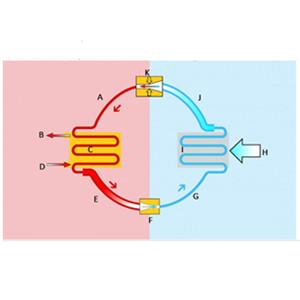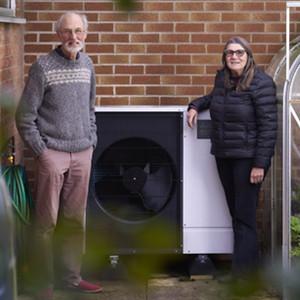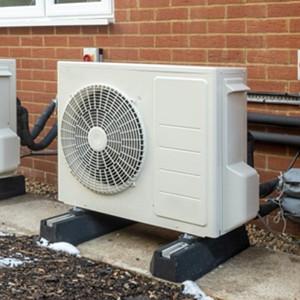Air Source Heat Pump are They Noisy
A common disadvantage of air source heat pumps is that they are loud. An outdoor fan unit can interrupt the peaceful atmosphere in a peaceful garden, or create a steady hum to prevent silent nights, but how loud can an air source heat pump be? We explain to you.
What is an air source heat pump?
An air source heat pump looks like a large air conditioning unit. It works by absorbing heat from the outside air and providing heat to the home through radiators, underfloor heating systems and the provision of hot water. Let's take a quick look at the science:
1. The heat in the air is absorbed by the device into a liquid refrigerant
2. The fluid becomes a gas in the process
3. Using electricity, the pump compresses the gas, heating it
4. Heat is transferred to the property's heating system
5. As the heat is transferred, the gas condenses back into a liquid and the cycle begins again.
Because an air source heat pump naturally extracts heat from the outside air, it is more environmentally friendly than our current traditional heating systems. In fact, in some cases, they are 300% more efficient and generate three units of useful heat for every unit of electricity used.

How noisy is an air source heat pump?
Generally speaking, an air source heat pump produces 40-60 decibels of noise at a distance of one meter. However, it does depend on the system. The reason they are relatively noisy is because the four main components of the compressor, air conditioner condenser, expansion valve, and evaporator can all be audible when they are in use. Compressors and fans, in particular, can cause noise problems.
It's not just running components that can go wrong. This is also the vibration they produce. The air makes noise as it passes through the heat exchanger, the intensity of which depends on the pressure. This can lead to a humming sound, and this constant humming is proving to be the most disturbing for homeowners and neighbors.
How to reduce the noise of air source heat pump
To reduce air source heat pump noise, you must first consider the optimal location of the equipment. Avoid installing them under bedroom windows (or under any windows) or elsewhere in your home where you want to rest. You must also place them as far away from your neighbor's borders as possible.
Because the air source pump draws heat from the air, it can be useful to place it in a sunny location so the pump doesn't have to work as hard. Having said that, they can even absorb heat from the air in sub-zero temperatures, so it will work even if you only have a shady space.
You may also want to consider using a sound enclosure. Sound enclosures are specially designed to surround outdoor mechanical equipment. They meet airflow requirements but also suppress sound to comply with noise planning limits and noise level requirements. At Leomon, our home sound enclosures are unobtrusive and easy to install. They are also compatible with almost every brand of air source heat pump system on the market today.
Our sound enclosures significantly reduce the noise produced by equipment over a wide frequency spectrum. They also feature an anti-vibration unit to eliminate constant humming that can interfere with sleep or everyday life.
And you don't have to worry about dazzling noise enclosures. At Leomon, we work with you to provide a variety of finish options to enhance the look of your installation and ensure your enclosure looks great.
Contact us
We are experts in air source heat pumps, ensuring your heat pump heats your property and its hot water quietly, efficiently and effectively. Every project is unique, so contact us today to find out how you can benefit from a heat pump.





